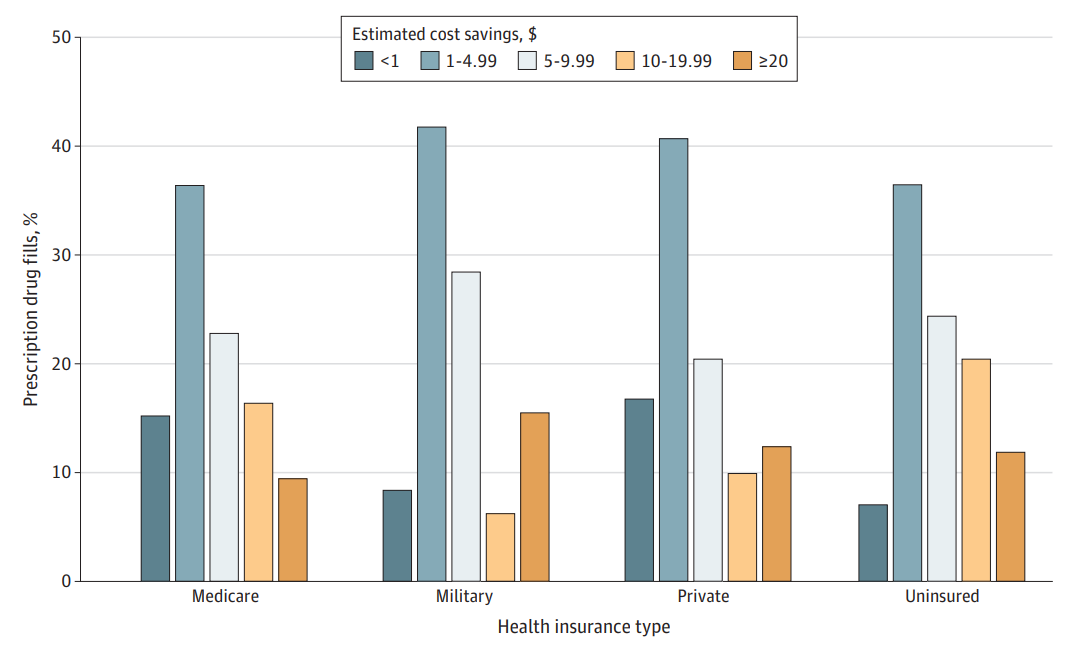
Introduction
Through its transparent, online direct-to-consumer pharmacy model, the Mark Cuban Cost Plus Drug Company (MCCPDC) has made substantial progress in the provision of affordable generic medications in recent years. This innovative approach has the potential to alleviate the financial burden on patients, particularly those without insurance. Recently published research explored the potential out-of-pocket savings for patients opting to purchase their medications from MCCPDC instead of using traditional health insurance plans.
Understanding the MCCPDC Model
The MCCPDC began selling generic prescription drugs in 2022, aiming to reduce costs for consumers through a straightforward pricing model. By eliminating intermediaries and offering medications directly to consumers, MCCPDC has created a more transparent and cost-effective solution for purchasing generic drugs.
A study published in the JAMA Health Forum in June 2024 investigated the potential savings for patients buying medications from MCCPDC. The research focused on 124 generic drugs available online (including amlodipine, atorvastatin, and fluoxetine) and compared their costs to those covered by various insurance plans in the US, including Medicare, Medicaid, military, private, and uninsured.
Methodology and Data Analysis
To estimate patient-level savings, researchers used data from the 2019 Medical Expenditure Panel Survey (MEPS). This survey provided a nationally representative sample of individuals and families, allowing for a comprehensive analysis of out-of-pocket costs for prescription drugs. The study matched generic medications sold by MCCPDC in March 2023 to prescriptions filled in MEPS, focusing on tablets and capsules in 30- and 90-pill quantities.
Out-of-pocket costs were adjusted for inflation using the National Average Drug Acquisition Cost. Researchers then compared these costs with MCCPDC prices, including a $5 shipping fee, to estimate potential savings. The analysis was stratified by insurance type to identify variations in savings.
Findings and Implications
The study revealed significant potential savings for patients purchasing medications from MCCPDC. Among 99,696,682 of 843,713,380 weighted prescription fills (11.8%), patients could have saved money by buying from MCCPDC. In fact, savings varied by insurance type, with uninsured patients benefiting the most. The median estimated cost savings per prescription was $4.96, with uninsured patients saving an average of $6.08 per prescription.
Some key statistics:
- Medicare: 5.5% of prescriptions filled (14,987,248 of 272,381,168) showed potential savings.
- Private insurance: 7.1% of prescriptions filled (14,679,121 of 207,387,159) showed potential savings.
- Military insurance: 9.9% of prescriptions filled (2,378,664 of 3,993,897) showed potential savings.
- Uninsured: 28.9% of prescriptions filled (5,000,260 of 12,220,292) showed potential savings.

The study also found that 50.3% of prescriptions with savings had cost reductions of less than $5. Along with 28.4% savings greater than $10. This indicates that while many patients could benefit from the MCCPDC model, the extent of savings varies widely.
Limitations and Future Directions
Despite the promising findings, the study has several limitations. The cross-sectional nature of the research means that results are based on a snapshot in time, and the cost and availability of drugs at MCCPDC can change frequently. More importantly, the analysis was limited to mail-order prescriptions, excluding potential savings from in-person pickups.
For future research, it would be beneficial to evaluate the long-term impact of MCCPDC’s pricing model on patient outcomes and overall healthcare costs. Further studies could also investigate the potential savings for a broader range of medications, including those not currently offered by MCCPDC.
Conclusion
The MCCPDC model offers a promising solution for reducing out-of-pocket costs for generic drugs. By providing transparent pricing and eliminating intermediaries, MCCPDC therefore, has the potential to significantly benefit uninsured patients and those with high out-of-pocket costs. As the healthcare landscape continues to evolve, models like MCCPDC could play a crucial role in making medications more affordable and accessible for all.
